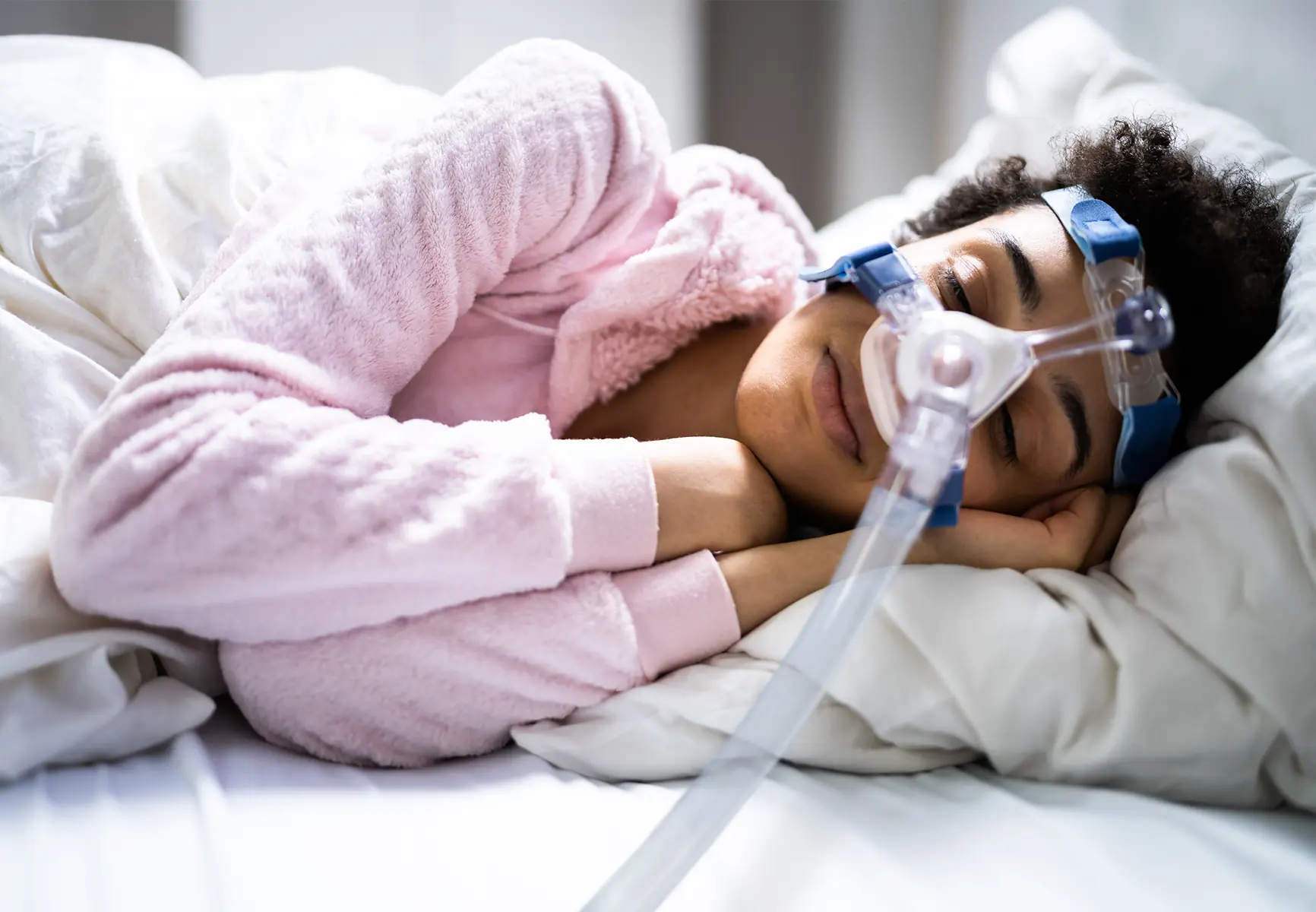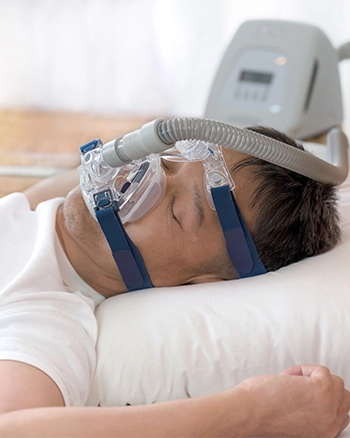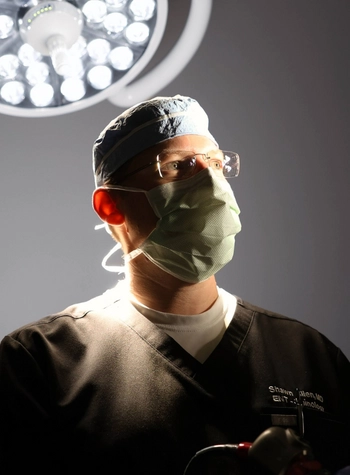Dr. Shawn Allen has either authored or reviewed and approved this content.
Page Updated:As a specialist helping patients manage their sleep apnea, Dr. Shawn Allen understands the challenges his patients in Houston and the Woodlands, Texas face daily in their pursuit of a good night’s sleep. He has helped many patients achieve healthier, more restful sleep using continuous positive airway pressure, (CPAP) therapy and through procedures that improve CPAP tolerance when necessary. CPAP and auto-titrating PAP (APAP) continue to represent the standard of care in treating obstructive sleep apnea when tolerated well.

CPAP (continuous positive airway pressure, or APAP in the case of an automatic pressure adjusting machine) is the standard treatment for obstructive sleep apnea (OSA) that involves a machine connected to a nose or face mask used during sleep. CPAP helps regulate sleep-disordered breathing by delivering a steady stream of pressurized air to stent open the collapsing portions of the airway while patients sleep. Patients wear a nose or face mask connected to the CPAP machine, and the continuous, gentle air pressure helps regulate breathing and prevent common airway obstructions responsible for sleep apnea. Pressures can be adjusted using titration studies in the case of CPAP machines; however, APAP machines automatically adjust within a set range of pressures and do not generally require titration studies. In nearly all cases, treatment of obstructive sleep apnea begins with CPAP/APAP therapy before considering other interventions such as surgery.

The details of CPAP machines vary slightly by manufacturer, but there are some components that are universal:
For individuals with obstructive sleep apnea using a CPAP machine can offer a number of benefits, including:
CPAP therapy can also help reduce the threat of serious health conditions, such as:
To fully benefit from CPAP therapy, it is important to keep your CPAP clean. A clean CPAP machine is also less likely to expose you to bacteria and mold. Dr. Allen recommends cleaning your CPAP machine daily (particularly the mask, tubing, and water container on the motor if humidified), or at the very least, once per week for a deep clean of the entire system. Please refer to the cleaning instructions provided by your CPAP manufacturer for complete details and recommendations, as they may change or include specifics for your machine.
General guidelines for cleaning your CPAP:
Once all parts and surfaces of your CPAP are clean and dry, put the machine back together.
There are various cleaning devices available for simplifying the process of cleaning and disinfecting CPAP equipment. These may also be an option to reduce time and effort spent cleaning the components, but should be confirmed as compatible with your device and FDA approved before using them.
Many people are familiar with older models of CPAP/APAP therapy machines, which were bulky, noisy, and uncomfortable to wear. Now, however, advances in CPAP device technology have led to machines that are smaller and much quieter. New CPAP machines are also designed to be much more comfortable, with a number of options for mouth and nasal masks. If you have a CPAP and find that it makes sleeping uncomfortable or difficult, contact Dr. Allen. Evaluation in the clinic often uncovers reasons for CPAP intolerance and highlights treatment options that avoid the risk of unsuccessful treatment of obstructive sleep apnea.
Some CPAP users encounter dry mouth, nasal congestion or a runny nose, and/or nosebleeds. If you experience any of these issues, contact Dr. Allen so that he can suggest ways to alleviate them.
Some changes he may suggest include:
If using your CPAP machine causes you to experience bloating or stomach discomfort, stop using it and call Dr. Allen.
Many of Dr. Allen’s patients are very familiar with the short-term effects of sleep apnea, like snoring, feeling groggy during the day, and morning headaches. These side effects are more than annoying: they can lead to a frustrated bed partner, poor workplace performance, moodiness, and serious health implications as listed above. While you may be able to work through some of the short-term effects of sleep apnea, the long-term impact on your health should be taken seriously and avoided by treating OSA. A lack of good sleep can weaken your immune system, cause weight gain that is difficult to control with diet and exercise, and potentially lead to life-threatening issues like:
To put it simply, if you have sleep apnea and suffer from poor sleep quality, the significant impact on your health should not be ignored.
When CPAP therapy is prescribed by a specialist treating OSA like Dr. Allen, the machine, mask, and components are covered either partially or fully by insurance. Regular checkups with documentation of CPAP compliance are required for ongoing coverage and refills on supplies such as masks and tubing, and allow for discussion of any problems with using your equipment as well.

If you struggle with drowsiness, headaches, irritability, a lack of focus and other effects of obstructive sleep apnea, Dr. Allen can help. To learn more about CPAP therapy and other treatments, please contact us to schedule a consultation at his office serving residents of Houston, the Woodlands, and surrounding communities.
1 American Academy of Sleep Medicine. CPAP. Available: https://sleepeducation.org/patients/cpap/. Accessed October 5, 2022.
2 Cleveland Clinic. CPAP Machine. Available: https://my.clevelandclinic.org/health/treatments/22043-cpap-machine. Accessed October 5, 2022.
3 National Heart, Lung, and Blood Institute. CPAP. Available: https://www.nhlbi.nih.gov/health/cpap. Accessed October 5, 2022.
4 American Sleep Association. Risks of Sleep Apnea. https://www.sleepassociation.org/sleep-apnea/risks/ Accessed October 5, 2022.
Dr. Shawn Allen has either authored or reviewed and approved this content.
Page Updated: